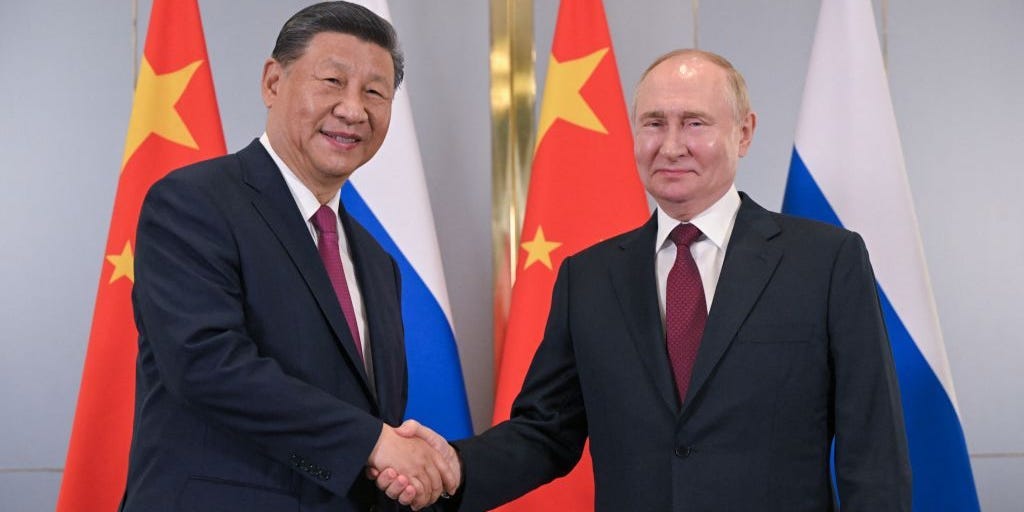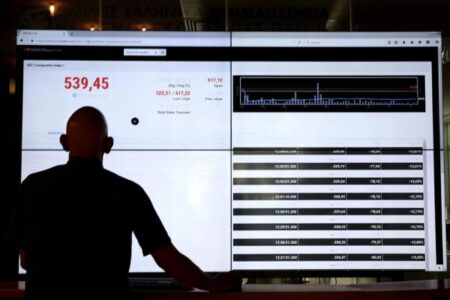Russia and China are planning to revive the age-old practice of barter trade to get around Western sanctions, Reuters reported on Thursday.
The deals could involve agriculture and could come as soon as this fall, the news agency reported, citing anonymous trade and payments sources. One source at a Russian industrial firm told the news agency that Russian firms were also talking about the exchange of metals for Chinese machinery imports.
Such arrangements are being discussed as trade between the two countries has become increasingly difficult amid tightening Western sanctions against Russia over its full-scale invasion of Ukraine in February 2022.
Recently, about 80% of bank transfers made in the Chinese yuan were bouncing back with no explanation after being stalled for weeks while banks decide whether they could transact, Russian media outlet Kommersant reported last month.
Before this year, Russia and its trade partners skirted sanctions by using smaller banks and other payment modes or non-US dollar currencies to circumvent the West’s ban of some Russian banks from the widely used SWIFT messaging system.
However, this strategy has been hitting snags since the US approved secondary sanctions targeting financial institutions that were helping Russia. These restrictions prompted global banks from China to the United Arab Emirates, Turkey, and Austria to reduce transactions with Russia.
Since barter trade doesn’t require monetary payments, it would allow Russia and China to skirt such issues.
Russia has used barter trade before
It would not be Russia’s first time using barter trade.
It was practiced during the Soviet era and in the years following the bloc’s collapse. At the time, China was a key trading partner.
In August 2022, the Taliban regime in Afghanistan also discussed barter trade with Russia that could involve trading Russian crude oil products in exchange for raisins, minerals, and medicinal herbs, according to RIA Novosti, a Russian state-owned news agency.
Heavily-sanctioned Iran and the Indian government were also in talks with Russia to practice barter trade in the early months of the Ukraine war.
Last year, cash-strapped Pakistan authorized the barter trade of specific goods with Russia.
It’s unclear if any of the parties eventually entered into any barter deal with Russia.
Major economy India, for one, has managed to work around payment issues to become one of Russia’s key trading partners.
Problems with barter trade
Even so, barter trade isn’t widely practiced in modern society.
“Exchanging goods for other goods would have to be manually accounted for, which would create major difficulties for any large or technologically advanced businesses using automated accounting systems,” wrote Alexandra Prokopenko, a fellow at the Carnegie Russia Eurasia Center, in a September 2022 blog post.
Barter trade also makes it difficult for tax collection, she added.
Russian authorities are working on other ways to skirt Western payment sanctions.
The country is rushing to set up alternative payment systems, including crypto, to facilitate trade.
Read the full article here
















